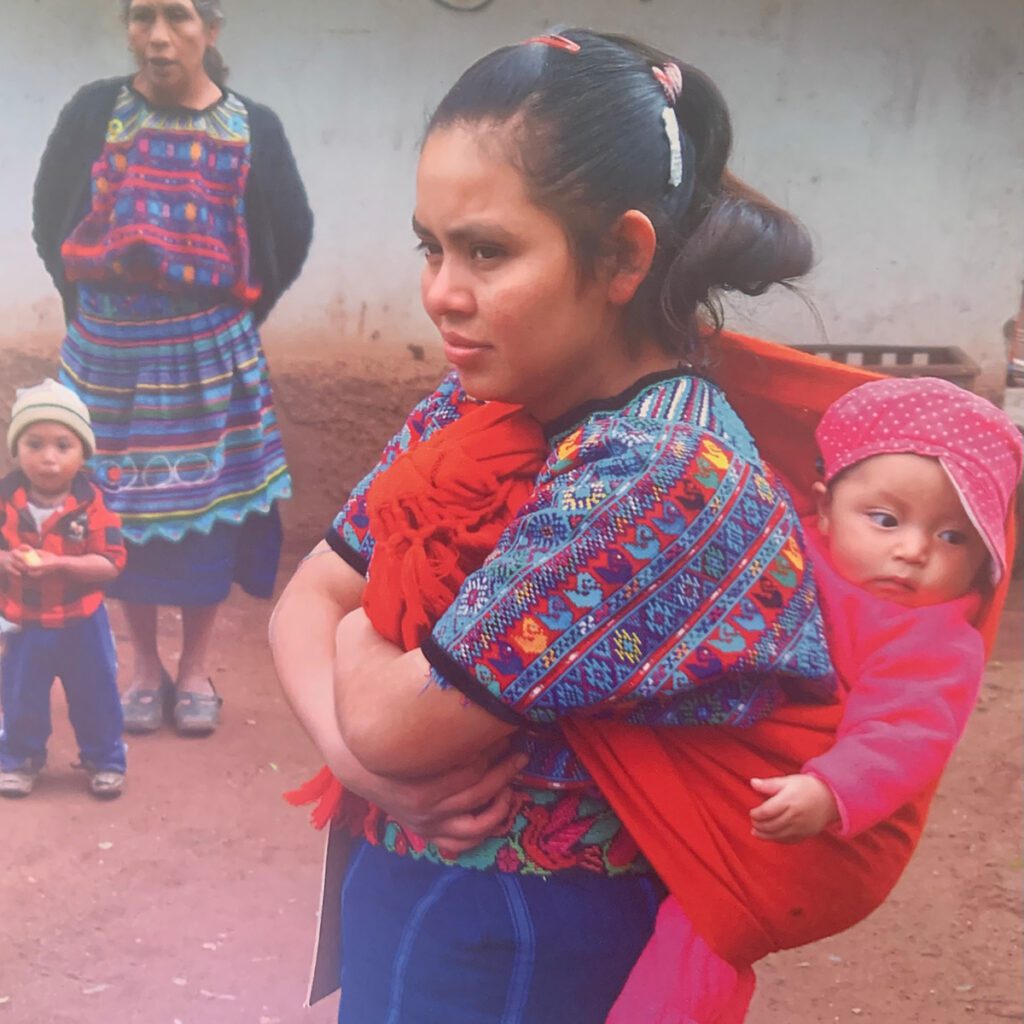Many of the passions that led me to start Nurturely were born in the remote highlands of Western Guatemala, in the Huehuetenango region. In these magical hills, I worked alongside comadronas (community midwives) and community health advocates who were supporting newborn and maternal health from community-led systems. It was my doctoral research on parent-infant physical contact that brought me to Huehuetenango, where I was working to unveil the biases of Western developmental theories of infant development. Specifically, documenting and studying the psychological and public health implications of the near-constant physical contact that characterizes infant care in much of the global majority, and still in the Mayan communities of rural Guatemala. But even more than the research, it was my daily interactions with the comadronas, mothers, and Mayan community members of Huehuetenango that enchanted me with the practice of living and working with baby attached to the back – the beautiful simplicity of a society that fully embraces responsive infant care as a central part of daily life, without any need for the baby-centric toys, schedules, or activities that characterize much of the infant care practices in the Western world today
Learning from these cross-cultural observations motivated much of Nurturely’s work doing research on the health implications of infant carrying and translating that research into education and carrier access to support postpartum equity in outcomes like lactation and depression (work that continues today in-person at the Nurturely Lounge and across rural Oregon, thanks to partnerships from Cow Creek Umpqua Indian Foundation and Ford Family Foundation)
Five years after my two summers of living and working in Guatemala, I have reconnected with the community that was so pivotal in inspiring the launch of Nurturely. Serendipitously, the exact same tiny community that I worked in in Guatemala, Todos Santos, is the community where the majority of the Mayan Guatemalan families in Oregon have immigrated from. This connection – in combination with Nurturely’s desire to spark challenging conversations at the intersection of culture, equity, and perinatal health, led to our very first mini-film, an interview documentary amplifying the experiences of Mayan mothers in the US, comparing and contrasting what it was like giving birth in the US versus Guatemala, filmed and edited by Jordyn Grace Roach (Oregon) with Melqui Vasquez (Guatemala).
The film touches on many themes that can be globally applied to the analysis of culture and birth. In the US, pregnancy, birth, and postpartum are first and foremost viewed as medical events. But the privilege of access to life-saving medical care here in the US doesn’t need to preclude an understanding of birth as an inherently cultural experience. In many communities around the world, this is a time of ceremony, support, and nourishment. In the US, the perinatal period is often synonymous with isolation, loss of identity, and rampant racial disparities stemming from systemic racism. The systems that guide birth and perinatal culture in the US are based in medicine and capitalism, which are systems built to exclude and marginalize communities that are not in the dominant position.
Birth and perinatal health are complex topics on their own – Nurturely’s goal is always to explore these topics from a systemic and cultural lens, advocating for access to empowering birth and perinatal care experiences as a human rights issue. This is not a binary topic – this is a complex and deeply personal, cultural, and often traumatic issue. Having these complex conversations is the first step toward achieving birth and perinatal equity where racism-based inequities are non-existent and all people can birth and recover in a way that is supportive for them.
The film explores: What can we learn by taking a cultural lens to pregnancy, birth, and lactation? How do the cultures of support – that are so critical for a safe and nurturing perinatal experience – manifest in different ways around the world and what lessons are there for us as US-based birth supporters?
Join us for free in-person screening and discussions: nurturely.org/cultures-of-birth
Interested in hosting a screening in your city? Contact us to learn more.
